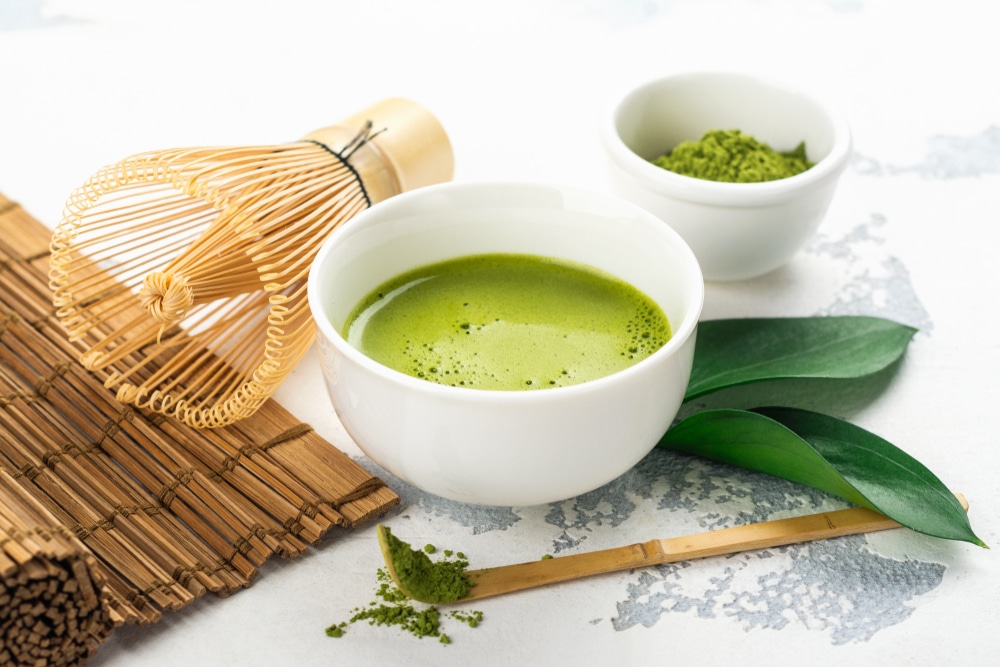In Eastern cultures, green tea has been celebrated for many thousands of years as a cultural asset and health care product. For some years now, green tea has also been hyped as a real health booster here, and not just because matcha and co. can help you lose weight.

How does green tea affect the metabolism?
Green tea contains many polyphenols, of which epigallocatechin gallate accounts for more than 50% and belongs to the catechins. This secondary plant substance makes the tea taste bitter.
- Together with the caffeine contained in green tea, the bitter substances are said to reduce fat absorption in the stomach and intestines. This helps the body to simply excrete the fats. This is the first plus for losing weight.
- In addition, the basal metabolic rate is said to increase with regular consumption of green tea. This means that the body’s consumption of calories at rest increases, which also helps with weight loss.
- The bitter substances in green tea can also inhibit the appetite for sweets. Another plus for the metabolism.
Some studies are already looking intensively at the positive effects of green tea and catechins in particular on weight loss and subsequent weight maintenance.
What other positive properties does green tea have apart from weight loss?
Green tea is said to have excellent antioxidant properties of all types of tea. Its ingredients help to protect the cells against free radicals. These aggressive oxygen molecules are released during normal metabolic processes or develop as a result of a less than healthy lifestyle, smoking or too much UV radiation.
Oxidative stress caused by these free radicals can attack and even destroy body cells. The cells age faster. Antioxidants are able to neutralize such free radicals. You are actively protecting your cells and therefore also actively anti-aging.
There are now also numerous studies that see a link between green tea and the prevention of various lifestyle diseases such as cardiovascular diseases or more serious health challenges. However, people with iron deficiency should be careful. This is because green tea can inhibit iron absorption. It also loses its antioxidant properties when consumed together with iron-rich foods such as green vegetables, meat or pulses.
Which green tea is the best?
Green tea is available finely ground in powder form, such as matcha. Ready-made green tea drinks often contain sugar or flavorings. You’d better keep your hands off them. Go for natural, organic varieties that are free from pesticides! Japanese matcha is considered the best green tea for your health. It is said to contain a particularly high amount of epigallocatechin gallate.

Is green tea available as a dietary supplement?
Green tea is also available in tablet form as a high-quality dietary supplement. 4protection® is suitable for optimum cell protection to support weight loss and preventive health care. The high-quality phytopreparation contains a combination of green tea extract, magnesium and vitamin C. The green tea extract is the brand-protected OM24®, which contains amino acids, trace elements and polysaccharides from the Camellia Sinensis plant (green tea) in addition to polyphenols. Vitamin C contributes to the normal function of the immune system and can help reduce fatigue. It is also said to act as an antioxidant. With 4protection® for optimum cell protection, you benefit from all the advantages for losing weight or for your health care. Get 4protection® now for optimum cell protection and stay fit and healthy with our tips!
